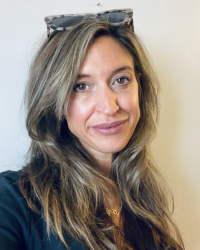Leanne Maskell felt so down and unsettled after university that she felt suicidal. Doctors told her she was fine, because she had always been a high achiever, so she went to see a private psychiatrist who told her she had ADHD. "I didn't believe him - I thought 'I have a real problem, not this!' I never would have thought I had ADHD - my instinct was that was just for hyperactive boys in class. Now working with people with ADHD I understand it presents very differently with boys and girls. With men it tends to come out as confidence and maybe aggression, and with women it's more emotional and beating themselves up, believing that they are the problem."
Awareness about ADHD has increased significantly in recent years, with ever-more people in the public eye talking about their adult diagnoses. There has especially been increased awareness about ADHD in women. "It's a buzzword at the moment, ADHD," says specialist ADHD therapist Bethany Ashley-Smith, "and I hope that it stays as something really important rather than just a buzz. The whole condition is a buzz! There's so much that's attractive about ADHD but the other side of it is that there is so much that is painful and crushing about it."
Bethany first became aware of ADHD working closely with addiction. There is a high co-morbidity of addiction and ADHD, as well as other mental health challenges and traumatic experiences. Bethany was then diagnosed with ADHD herself and has shifted her practice to focus on supporting ADHD clients.
Both Bethany and Leanne see pros and cons in the attention that ADHD is receiving today, especially on social media. "When I became an ADHD coach, I was inundated by parents and their kids who were being diagnosed," shares Leanne. "But from talking to the children, they all just had very serious problems with social media and other conditions and behaviours like self-harming and severe depression.
I think it's a real concern, and I see a lot of celebrities being diagnosed and it's great to raise awareness, but then the NHS can't cope. When I was diagnosed privately, I was put on medication that cost me £300 a month and they wouldn't really let me transfer back to the NHS. Social media is amazing to raise awareness but it can also be oversimplified and because the proper resources like the NHS aren't available, people are being financially exploited by companies that want them to go and get these tests and medication that they might not necessarily need."



